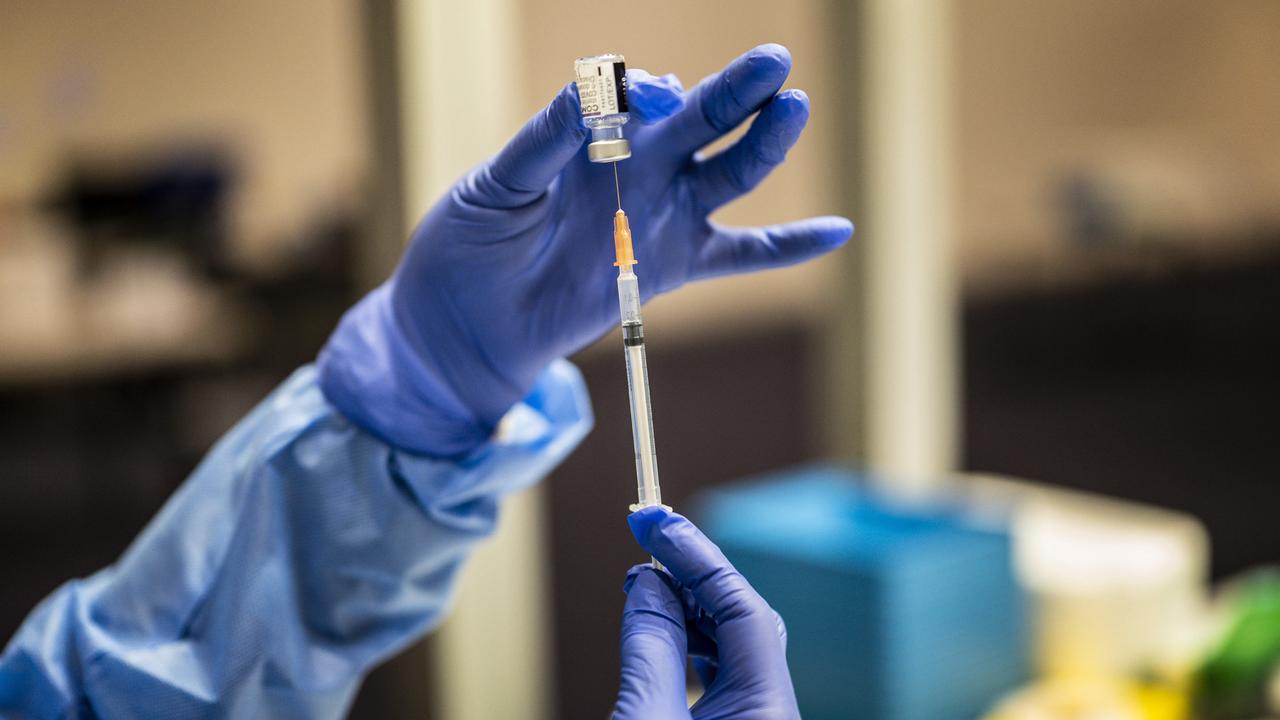Covid-19 deaths in Australia: Virus on track to be nation’s third biggest killer in 2022
Thousands of Australians have died from Covid-19 this year and experts are warning deaths could further soar in winter.

Exclusive: Covid-19 is on track to become Australia’s second or third biggest killer in 2022, causing almost as many deaths as dementia and heart disease.
On average 285 Australians are dying from Covid-19 each week and if that continues the virus will claim the lives of 14,826 Australians this year.
That’s almost as many who will die from dementia (14,919) and getting close to our number one killer – heart disease – which takes the lives of over 17,700 people a year.
Experts have warned deaths could rise even further once we get into winter when people are indoors and Covid is more likely to spread.
“At the moment, it’s kind of gone quiet,” Deakin University epidemiologist professor Catherine Bennett said.
“People are over it, and they say we’re not going back into lockdown, so forget it,” she said.

Lockdowns would no longer work to control the rising infections, she said.
Prof Bennett said Omicron spreads so fast “by the time you know you have an infection, the people you have already infected that you didn’t even know you’re infected are infectious themselves and once you reach that point, you can’t control it with contact tracing”.
A complicating factor in controlling the virus is that getting infected with Omicron appears to produce little protection against reinfection.
Prof Bennett said making sure you have a third and fourth vaccine booster doses and going to a doctor early in an infection to find out if you are eligible for new Covid busting drugs will be critical in curtailing the death rate, she said.
“Well, the whole point is, because we can’t really go back to lockdown therefore these other things really matter,” she said.
To date fewer than one in four of the 4.2 million Australians are aged over 65 have received their fourth Covid booster.
“That second booster for those in the vulnerable groups is really critical,” Prof Bennett said.

New data from Israel showed a fourth vaccine significantly boosted the immunity to the virus and helped stop many elderly getting infected with the virus for between four to eight weeks.
People aged over 60 who received a fourth vaccine dose had rates of severe disease 3.5 times lower than those who had only received three doses.
Australians can also now obtain Covid busting pills from their GP and local pharmacy.
Pfizer’s Paxlovid cuts hospitalisations by 89 per cent, Merck’s Lagevrio reduced the risk of hospitalisation or death by approximately 50 per cent.

AstraZeneca’s Evushield injection which can be used before exposure to COVID-19 to help prevent infection for those at risk of serious outcomes, reduced the risk of developing symptomatic COVID-19 by 83 per cent compared with placebo.
Prime Minister Scott Morrison was pressed on Australia’s Covid-19 situation on Wednesday - with the nation now averaging about 40 to 45 deaths a day and holding one of the top spots for cases per capita in the world.
Mr Morrison said the medical advice hadn’t changed, that the government was moving forward with its winter preparedness plan and asserted the country was “not going back to those daily press conferences where people were talking about COVID every day and putting the threat of shutdowns and lockdowns and interfering in people’s lives again”.
“I’ll tell you, that’s not what I’m going to do, I’m not going to drag Australia back into those times again,” Mr Morrison said.
To better control the infection without lockdowns health authorities needed to carry out random blood tests in the population each month to get an idea where it was spreading, Prof Bennett said.
She said more work should also be done understanding which people were dying from the virus and why so we could learn how to prevent those deaths.
It was hard to predict ahead what would happen with the virus but Prof Bennett hopes a mix of higher vaccination rates and faster access to Covid treatments will work.
“Hopefully that will reduce the infection rate by the end of second half of the year, pull us way off that trajectory that you’re looking at now,” she said.




